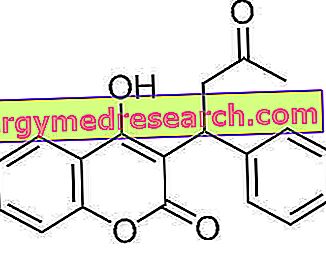
What is Telzir?
Telzir is a medicine that contains the active substance fosamprenavir. It is available as pink, capsule-shaped tablets (700 mg) and in oral suspension (50 mg / ml).
What is Telzir used for?
Telzir is an antiviral medicine. It is used in combination with ritonavir (another antiviral medicine) and other antiviral medicines to treat patients aged six years or older with human immunodeficiency virus type 1 (HIV-1) infection-causing virus from acquired immunodeficiency (AIDS). Patients who have already taken drugs belonging to the same class as Telzir (protease inhibitors) should be prescribed by Telzir only after having carefully considered the antiviral drugs previously taken by the patient and the possibility that the virus responds to the drug.
The medicine can only be obtained with a prescription.
How is Telzir used?
Telzir therapy should be started by a doctor who has experience in the treatment of HIV infection.
The recommended dose of Telzir for adults (aged 18 or over) and children (aged six to 18) weighing more than 39 kg is 700 mg twice a day. In children weighing between 25 and 39 kg, the dose depends on body weight. There is no recommended dose for children weighing less than 25 kg.
Telzir tablets can be taken with or without food. The oral suspension should be taken without food and on an empty stomach by adults, but children should take it with food to cover their taste and encourage compliance with the treatment. In adults, each dose of Telzir should be given together with 100 mg of ritonavir twice a day. In children, the dose of ritonavir depends on body weight.
Adults with liver problems should take a reduced dose and be carefully monitored for safety and treatment response. For more information, see the package leaflet.
How does Telzir work?
The active substance in Telzir, fosamprenavir, is a "prodrug" of the amprenavir protease inhibitor, which means that it is converted into amprenavir in the body. Amprenavir is
authorized in the European Union (EU) since October 2000 under the name Agenerase. Amprenavir blocks an enzyme called protease which is involved in the reproduction of HIV. If the enzyme is blocked, the virus is unable to reproduce normally, which slows the spread of the infection.
Ritonavir is another protease inhibitor, which is used as a "booster" (ie as a support to increase the potency of another drug). It slows down the rate at which amprenavir is assimilated, thereby increasing its concentration in the blood. This allows a smaller amount of Telzir to be used to achieve the same antiviral effect. Telzir, taken in combination with other antiviral medicines, reduces the concentration of HIV in the blood and keeps it at a low level. Telzir does not cure HIV infection or AIDS, but it may delay the damage to the immune system and the development of infections and diseases associated with AIDS.
How has Telzir been studied?
Telzir was analyzed in three main studies involving 1 862 HIV-infected adults. In the first study, Telzir boosted with ritonavir was compared with nelfinavir (another protease inhibitor) in treatment-naïve adults (ie in subjects who had previously received treatment for HIV infection for no more than four weeks). ). The other two studies compared Telzir with lopinavir (another protease inhibitor), both potentiated with ritonavir. In one of these studies, patients were naïve to treatment, while in the other they had previously been treated to treat HIV infection, even with protease inhibitors. In all three studies, patients also took two reverse transcriptase inhibitors (another type of antiviral drug). The main measure of effectiveness was the level of HIV in the blood (viral load) in the first 48 weeks of treatment.
The efficacy of Telzir, in combination with other antiviral medicines, has also been evaluated in one main study involving 57 HIV-infected children aged between two and 18 years.
What benefit has Telzir shown during the studies?
In studies conducted on treatment-naïve adults, Telzir boosted with ritonavir was as effective as the comparator medicines, but its efficacy was lower in adults already undergoing previous treatment. After 48 weeks, 69% of treatment-naïve adults taking Telzir boosted with ritonavir (221 out of 322) and 68% of those taking nelfinavir (221 out of 322) reported viral loads below 400 copies / ml. Similar results were observed in the study in which Telzir was compared with lopinavir, where about three-quarters of the patients in both groups reported viral loads below 400 copies / ml. In the study of previously treated patients, subjects treated with lopinavir showed a greater reduction in viral load in the first 48 weeks.
A similar benefit was also observed in children treated with Telzir. However, the number of children under the age of six was too low to justify the use of Telzir in this age group.
What is the risk associated with Telzir?
The most common side effects in adults treated with Telzir (seen in more than 1 patient in 10) are diarrhea and increased concentrations of triglycerides (a type of fat) in the blood. Similar side effects have been observed in children. For the full list of all side effects reported with Telzir, see the Package Leaflet.
Telzir should not be used in people who are potentially hypersensitive (allergic) to fosamprenavir, amprenavir or any of the other ingredients or to ritonavir. Telzir should not be used in patients taking rifampicin (for the treatment of tuberculosis), St. John's wort (a herbal preparation used to treat depression), or drugs that are metabolized in the same way as Telzir or ritonavir and that are dangerous if they reach high concentrations in the blood. For the full list of these medicines, see the package leaflet.
Since Telzir is converted in the body to amprenavir, it should not be given at the same time as other drugs that contain amprenavir. Care should also be taken when Telzir is used in patients who are taking other medicines at the same time. For all information, see the package leaflet.
As with other anti-HIV drugs, patients receiving Telzir may be at risk of lipodystrophy (changes in the distribution of body fat), osteonecrosis (death of bone tissue) or immune reactivation syndrome (symptoms of infection caused by the reactivation of the immune system ). Patients with liver problems (including hepatitis B or C infection) may be at greater risk of liver damage if treated with Telzir.
Why has Telzir been approved?
The Committee for Medicinal Products for Human Use (CHMP) concluded that Telzir, which contains a prodrug of amprenavir, is beneficial to patients, as it reduces the number of tablets that they need to take compared to the number of Agenerase capsules needed to reach the same dose of amprenavir. The committee determined that the benefits of Telzir outweigh its risks in the treatment of HIV-1 infection in adults and in children aged six years or older in combination with other antiretroviral drugs. The committee noted that, in adults with limited experience of treatment for HIV infection with antiviral drugs, Telzir boosted with ritonavir was not as effective as ritonavir-boosted lopinavir. In severely pretreated patients, the use of Telzir boosted with ritonavir has not been sufficiently studied. Furthermore, no comparative studies have been performed on children. The Committee recommended that Telzir be given marketing authorization.
More information on Telzir:
On 12 July 2004, the European Commission granted Telzir a marketing authorization valid throughout the EU to Glaxo Group Ltd. The marketing authorization was renewed on 12 July 2009.
The full EPAR for Telzir can be found here.
Last update of this summary: 07-2009.



